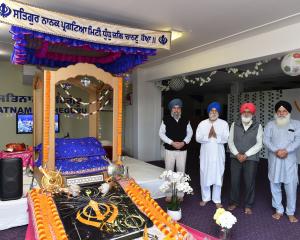
University net carbon zero programme manager Craig Cliff told a seminar in Dunedin achieving the zero carbon goal included tackling the university’s five main sources of carbon emissions in 2019, the biggest being international long haul flights (18%).
If Otago staff domestic flights (10%) were added to international flights, both long and shorter, the combined total was 34%.

The university was in the process of joining an alliance with the Dunedin City Council, Otago Regional Council, Otago Polytechnic, local runanga and the Southern District Health Board to ensure Dunedin was carbon neutral by 2030.
Insights gained from the Covid-19 pandemic lockdown, including greatly reduced international travel and greater use of remote video conferencing, pointed to promising options.
In the past, some Otago academics had flown overseas to a conference for a week, then returned to Dunedin to deliver a week-long lecture series before flying abroad again to attend another conference.
Smarter car travel meant reducing the amount of driving done with only one person in the car.












